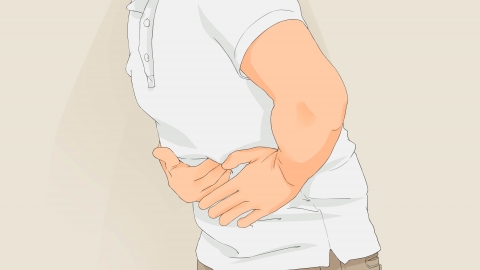What causes appendicitis?
Generally, appendicitis may be caused by factors such as an improper diet structure, vigorous exercise after meals, obstruction of the appendix lumen, bacterial infection, or intestinal dysfunction. It is recommended to seek medical attention promptly, identify the underlying cause, and receive symptomatic treatment under a doctor's guidance. Specific analyses are as follows:

1. Improper diet structure: Long-term insufficient intake of dietary fiber can easily lead to constipation, causing fecal residue to accumulate and irritate the appendix, triggering inflammation. Adjust your diet by consuming more fiber-rich foods such as spinach, celery, and apples, drink plenty of water daily, maintain smooth bowel movements, and reduce irritation of the appendix by feces.
2. Vigorous exercise after meals: Engaging in intense physical activities such as running or jumping immediately after eating may cause food residue to enter the appendix lumen and induce inflammation. Develop the habit of resting for at least 30 minutes after meals before engaging in activity, gradually increase exercise intensity, and avoid sudden strenuous exercise.
3. Obstruction of the appendix lumen: Fecal stones or food residue blocking the appendix lumen can prevent secretions from draining properly, leading to inflammation. During the acute phase, follow your doctor’s instructions to use medications such as ceftriaxone sodium injection, metronidazole injection, and levofloxacin injection to control infection. Appendectomy may be necessary to remove the affected appendix when needed.
4. Bacterial infection: Intestinal bacteria may invade through damaged areas of the appendix mucosa, causing acute appendicitis, manifesting as abdominal pain and fever. Follow medical advice to fully complete a sufficient course of antibiotics such as amoxicillin-clavulanate potassium tablets, cefixime dispersible tablets, or azithromycin capsules to inhibit bacterial proliferation.
5. Intestinal dysfunction: Abnormal or spasmodic intestinal motility may compress blood vessels and the lumen of the appendix, leading to ischemia and inflammation. Take medications as prescribed, such as bifidobacterium triple viable capsule, bacillus subtilis and enterococcus faecalis viable granules, or bacillus licheniformis viable capsule, to regulate intestinal function and relieve spasms.
Maintain regular eating habits in daily life, avoid overeating, and reduce consumption of spicy and greasy foods. Establish healthy bowel habits to prevent chronic constipation. Avoid lying down flat or engaging in vigorous activity immediately after meals. Adopting a healthy lifestyle can help reduce the risk of developing appendicitis.







